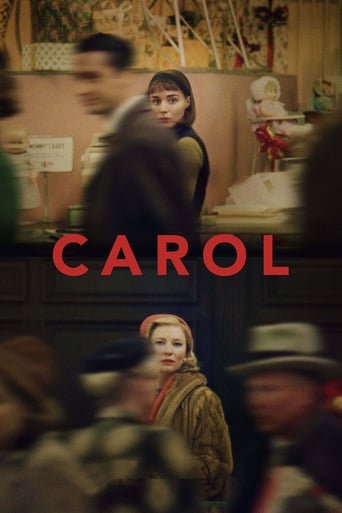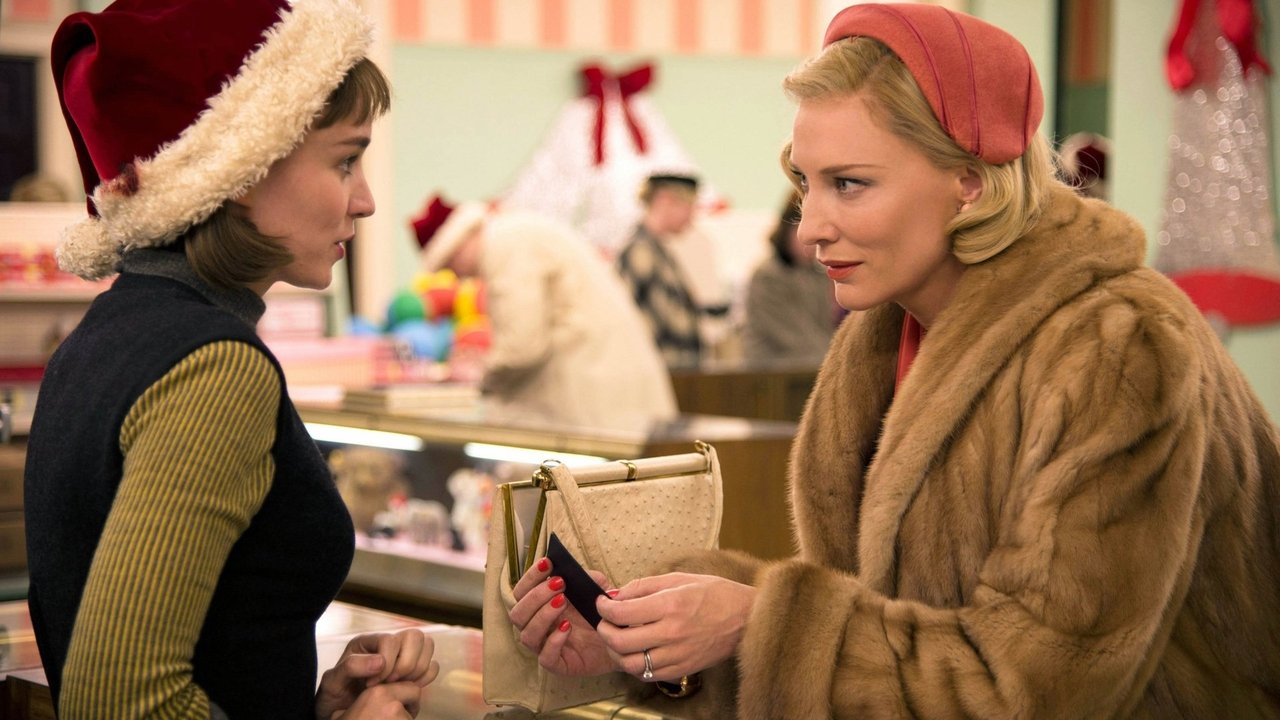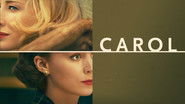bananamilkstan
I think they were drawn to each other the first time they met in the store, the first moment their eyes caught, Therese was behooved. And it shows that carol was attracted to her when she started asking her personal questions. Like "what did you want when you were 4?" And it seems like no one asks Therese these kind of questions judging by the way her eyes refused to meet carol's. Carol was eyeing Therese every moment she could get just to savior her, or rather, the moment. And she wanted to see her more. So I think she left her gloves there on purpose just as an excuse to see her again. When they went out for lunch, their chemistry is so well after only a few minutes of conversation, Carol was so willing to know about Therese. you could tell that carol was kind of suspicious of Therese's sexuality when she said that she was a. "Very strange girl". And that she was "out of this world". After that, they show a scene where Therese writes Carols name and when she first met her. I think that means that she likes would like to remember her.that moment where she went to the Times office with her friend, and when they were talking about attractions, I think that opened her mind a bit. You can't help but think that they've shared a pretty special moment in the car, and Therese would probably think that she REALLY wants to capture carol, not just her beauty, but her kindness, along the fact that she's the first person she ever takes a picture of, she's that special to her already . And when they're back home, she can't help but think that she's also a good mother. When Therese's playing the piano and carol comes and just puts her hands on her shoulder, She becomes a little tense, it's either she's realizing her attraction or no one has touched her that gently before. She gets flustered whenever carol asks her personal questions.She witnesses the fight that happens outside between harge and carol and she just highers the volume, respecting their privacy.When she's taking Therese back to the station in the car, you can see how miserable carol looks. And how helpless Therese feels, therefore she cries in the train because she just feels like it's her fault, that she wants to make carol feel better and all.
Stephen Crotty
Acting was not as good as the critics say. It was good, nothing more. Story could have been interesting but meandered nowhere.
I really can't feel inspired to say much more about this yawn fest.
netgearppp
I love happy endings.I'd skipped over this film in my Netflix queue for several months before I casually hit the button to watch on my Roku. Boy, did I do myself a favor!The soundtrack and cinematography are simply the best and has forced me to purchase the soundtrack because it is so strikingly lovely. Maybe the film being a period piece lends itself to the orchestral maneuvers that Carter Burwell uses to elicit that certain physiological response that makes your body want to move ( if you know what I mean). Marry the preceding with an intriguing storyline about an older woman seducing a younger woman (or was it visa versa) that was believable (maybe a wee bit camped-up by Blanchet during the first 15 or so minutes) and Mara's pain from being dumped, once, twice.Did I say, I love happy endings.I would like to see a sequel.
chaos-rampant
This is one to bask in its air for a while, one of several films about transition in life that I've seen in the last few days. It does not ask particularly difficult questions, about love or otherwise. Being able to inhabit transition is still one of the most illuminating uses of our time however. Going out the door, arriving at the last bend of the road before our destination; these are the stuff that make life the awe-inspiring journey it is, worth experiencing.The double perspective we are offered here is on one hand a quarrelsome world of need and anxiety, a bit cold, with boys pressuring the young woman for her affections, trying to pin her down to a life. Eventually it's revealed to be a much more cruel place, its machinery extending far afield. A private detective with them all this time and having set up his filming operation right next door to the lovers' room.But there's also the world of going out the door in jittery search; the world of tentative lovers getting to pull back the covers of self from each other. This is a world where taking images (the young one is a budding photographer) doesn't come with a narrative of what they can be used to prove or exact from someone (a trial about custody is looming), they are not 'taken' from, they are shared back in the open for what they signify; people having come close for the occasion.Seeing is central here, the story is after all in Anna Karenina's lineage (a preeminent story where seeing gives rise to the world of urge). We've just described two different kinds of it; one seeing that is strident and anxious with need, another where the gaze is open and jittery with anticipation. The gaze of the film itself is soft and languid. It felt like a more robust Wong Kar Wai. There is a marvelous tone poem the filmmaker squeezes in early, reminiscent of Kar Wai's going through tunnels. How exciting to consider that what would have been experimental film in the 1950s, now is part of the common fabric of perceiving. The whole production also deserves a mention; bringing the era alive must have been such painstaking work. They do it, creating a 1950s world that envelops while avoiding the stifling impulse to see 'period' in purely sumptuous terms of a rosy past. I left the film with a sense of Roonie's character as a young student discovering life just like someone would now. But there is also a third seeing that I would remiss in failing to mention. See, there is going out the door, and there is arriving on the last bend of the road, maybe the one before last. There is discovery and there is how to move forward from it. It's what we have in the final shot. Is she there to say goodbye the way they both deserve? There to announce she's there? As with the whole, it's not something we've not seen before but I like the things that we are called to inhabit here.



 AD
AD























